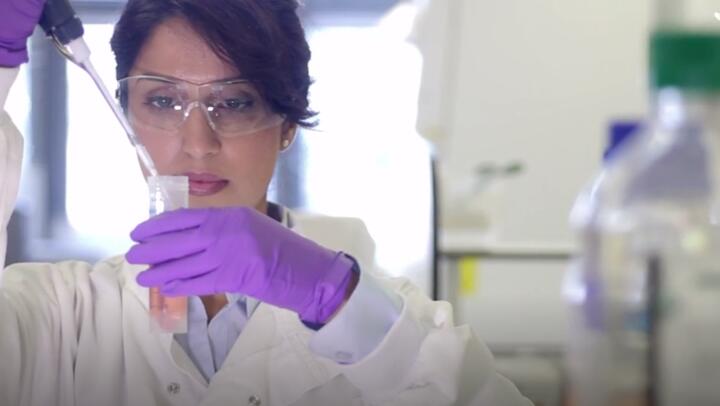What is abdominal cancer?
Abdominal cancer is a type of cancer that occurs when there is an uncontrolled growth of abnormal cells anywhere in the abdomen, the area between the lower chest and the groin. The abdomen consists of many organs, including the stomach, intestines, liver, gallbladder, pancreas, esophagus, and numerous blood vessels. Abdominal cancer is a general term for a variety of cancers.
Common forms of abdominal cancers include:
- Colorectal cancer
- Liver cancer
- Pancreatic cancer
- Kidney cancer (renal cell cancer)
- Stomach cancer (gastric cancer)
Rare forms of abdominal cancer include:
- Adrenocortical cancer (cancer of the adrenal glands, a pair of organs that produce hormones)
- Primary peritoneal cancer (cancer of the lining of the inside of the abdomen that covers many abdominal organs)
- Peritoneal mesothelioma (cancer of the lining of the inside of the abdomen that is caused by exposure to asbestos)
Normally, cells in the abdomen that are old or damaged will stop dividing and die. These cells are replaced by healthy young cells. Abdominal cancer occurs when old or damaged cells divide and multiply uncontrollably. This generally results in the development of a malignant mass of tissue (tumor) in the specific organ of the abdomen.
If left untreated, abdominal cancer cells can continue to multiply and spread to other parts of the body—a process called metastasis. As abdominal cancer progresses, it interferes with vital processes and functions of the organ where it began and the organs where it has spread, such as the lymphatic system, lungs, and other abdominal organs.
Abdominal cancer can be fatal, especially if undetected and untreated. Prognosis of abdominal cancer varies depending on the type of cancer and the stage of advancement; your age, medical history, and coexisting conditions or diseases; and other factors.
For example, colorectal cancer often develops from noncancerous adenomatous intestinal polyps in the colon that can become malignant or cancerous over time. Prognosis is excellent when intestinal polyps are detected and removed before cancer develops. Prognosis is also good if the cancer cells have not spread outside the polyp. Regular screening, such as a colonoscopy, can look for early signs of colorectal cancer.
Other types of abdominal cancer, especially pancreatic cancer, stomach cancer, and liver cancer, can be more difficult to detect and treat and have a bleaker prognosis, especially if diagnosed in later stages of the disease.
Abdominal cancer can lead to life-threatening complications and be fatal. Seeking regular medical care offers the best chances of discovering abdominal cancer in its earliest, most curable stage. If you have abdominal cancer, following your treatment plan may help reduce your risk of serious complications.
What are the symptoms of abdominal cancer?
Symptoms of abdominal cancer vary depending on the specific type of cancer, stage of advancement, and other factors. Many people experience no symptoms in the early stages of some forms of abdominal cancer, such as colorectal cancer, stomach cancer, pancreatic cancer, and liver cancer. Symptoms of abdominal cancer can also be vague and similar to symptoms of other diseases, disorders and conditions.
General symptoms of abdominal cancer
Symptoms of abdominal cancer can be similar to symptoms of other conditions. These symptoms include:
- Abdominal pain
- Fatigue
- Fever
- Itchy skin
- Loss of appetite
- Night sweats
- Weight loss
Digestive and gastrointestinal tract symptoms of abdominal cancer
Symptoms of abdominal cancer can also affect the gastrointestinal tract and digestive system. These symptoms include:
- Bloating
- Change in bowel movements
- Constipation
- Diarrhea
- Gas
- Nausea
- Rectal bleeding or blood in the stool (melana)
- Vomiting
Other symptoms of abdominal cancer
Other symptoms that may be caused by abdominal cancer include:
- Abdominal mass or swelling
- Anemia
- Hematuria (bloody urine)
- Jaundice (a yellowing of the skin)
- Pallor (very pale skin)
- Shortness of breath
What causes abdominal cancer?
Abdominal cancer occurs when old or damaged cells divide and multiply uncontrollably. The underlying cause of this varies depending on the specific form of cancer. For example:
- Colorectal cancer commonly develops from adenomatous intestinal polyps in the colon that are not removed while still benign.
- Liver cancer is often caused by certain types of liver disease, often chronic hepatitis B or C infection or alcoholism. Liver cancer can also be caused by another cancer in the body that spreads to the liver.
- Stomach cancer is linked to significant risk factors but the exact cause is not known.
- Pancreatic cancer is linked to significant risk factors but the exact cause is not known.
- Renal cancer is not linked to a specific risk factor in most cases.
- Peritoneal mesothelioma, or cancer of the lining of the inside of the abdomen, is caused by exposure to asbestos.
In addition, metastasis from other areas, such as the ovaries, is a key concern.
What are the risk factors for abdominal cancer?
A number of factors are thought to increase your chances of developing abdominal cancer. Not all people with risk factors will develop abdominal cancer, and some people who do not have risk factors will develop abdominal cancer.
Risk factors for abdominal cancer include:
- Adenomatous intestinal polyps that are not removed while still benign (noncancerous)
- Advancing age, especially older than 50 years
- Alcoholism or heavy alcohol ingestion
- Chronic hepatitis B or C infection
- Chronic pancreatitis
- Diabetes
- Eating a high-fat, low-fiber diet or a diet that is high in salty and smoked foods
- Bacterial infection with Helicobacter pylori
- Obesity
- Personal history of cancer or family history of abdominal cancer
- Smoking
- Ulcerative colitis
Reducing your risk of abdominal cancer
You may be able to lower your risk of developing some forms of abdominal cancer by:
- Eating a diet that is low in fat and salty and smoked foods, and high in fiber and fruits and vegetables>
- Maintaining a healthy weight
- Not drinking alcohol or limiting alcohol intake to one drink per day for women and two drinks per day for men
- Quitting smoking
- Getting regular screening tests such as a colonoscopy
How is abdominal cancer treated?
Treatment of abdominal cancer begins with seeking regular medical care throughout your life. Regular medical care allows a health care professional to best provide early screening tests, such as digital exams and fecal occult blood tests. Regular medical care also provides an opportunity for your health care professional to promptly evaluate symptoms and your risks of developing abdominal cancer and order diagnostic testing. These measures may increase the chances of detecting abdominal cancer in its earliest, most curable stage.
The goal of abdominal cancer treatment is to permanently cure the cancer or to bring about a complete remission of the disease. Remission means that there is no longer any sign of the disease in the body, although it may recur or relapse later.
Abdominal cancer treatment plans use a multifaceted approach that is individualized to the type of abdominal cancer and its stage of advancement; your age, medical history, and coexisting diseases and conditions; and other factors.
Abdominal cancer treatment may include some combination of the following:
- Chemotherapy
- Dietary counseling to help people with cancer maintain their strength and nutritional status
- Pain medications
- Palliative care to improve the overall quality of life for families and patients with serious diseases
- Participation in a clinical trial to test promising new therapies and treatments for abdominal cancer
- Physical therapy to help strengthen the body, increase alertness, reduce fatigue, and improve functional ability during and after cancer treatment
- Radiation therapy
- Surgery to remove a cancerous tumor or to treat certain complications of abdominal cancer, such as an intestinal obstruction
- Targeted molecular therapy for specific tumors harboring required gene mutations
Complementary treatments
Some complementary treatments may help some people to better deal with abdominal cancer and its treatments. These treatments, sometimes referred to as alternative therapies, are used in conjunction with traditional medical treatments. Complementary treatments are not meant to substitute for traditional medical care. Be sure to notify your doctor if you are consuming nutritional supplements or homeopathic (nonprescription) remedies, as they may interact with the prescribed medical therapy.
Complementary treatments may include:
- Acupuncture
- Massage therapy
- Nutritional dietary supplements, herbal remedies, tea beverages, and similar products
- Yoga
Hospice care
In cases in which abdominal cancer has progressed to an advanced stage and has become unresponsive to treatment, the goal of treatment shifts away from curing the disease and focuses on treating the person. The goal of hospice care is to help people in their last phases of an incurable disease to live as fully and comfortably as possible. Hospice care involves medically controlling pain and other symptoms while providing psychological and spiritual support as well as services to support the patient’s family.
What are the potential complications of abdominal cancer?
Complications of abdominal cancer are caused by a rapid growth of abnormal cells. These cells can travel through the bloodstream and lymphatic system to other areas of the body, most often the bones, lungs and liver. There they can multiply rapidly and develop new malignant tumors that interfere with normal organ function. Complications of abdominal cancer are serious and life threatening and can include:
- Dysuria (difficulty urinating) and urinary retention
- Intestinal obstruction and rupture of the intestinal wall
- Liver failure
- Peritonitis, an abdominal infection
- Severe pain
You can best treat abdominal cancer and lower your risk of complications by following the treatment plan that you and your health care team design specifically for you.


















